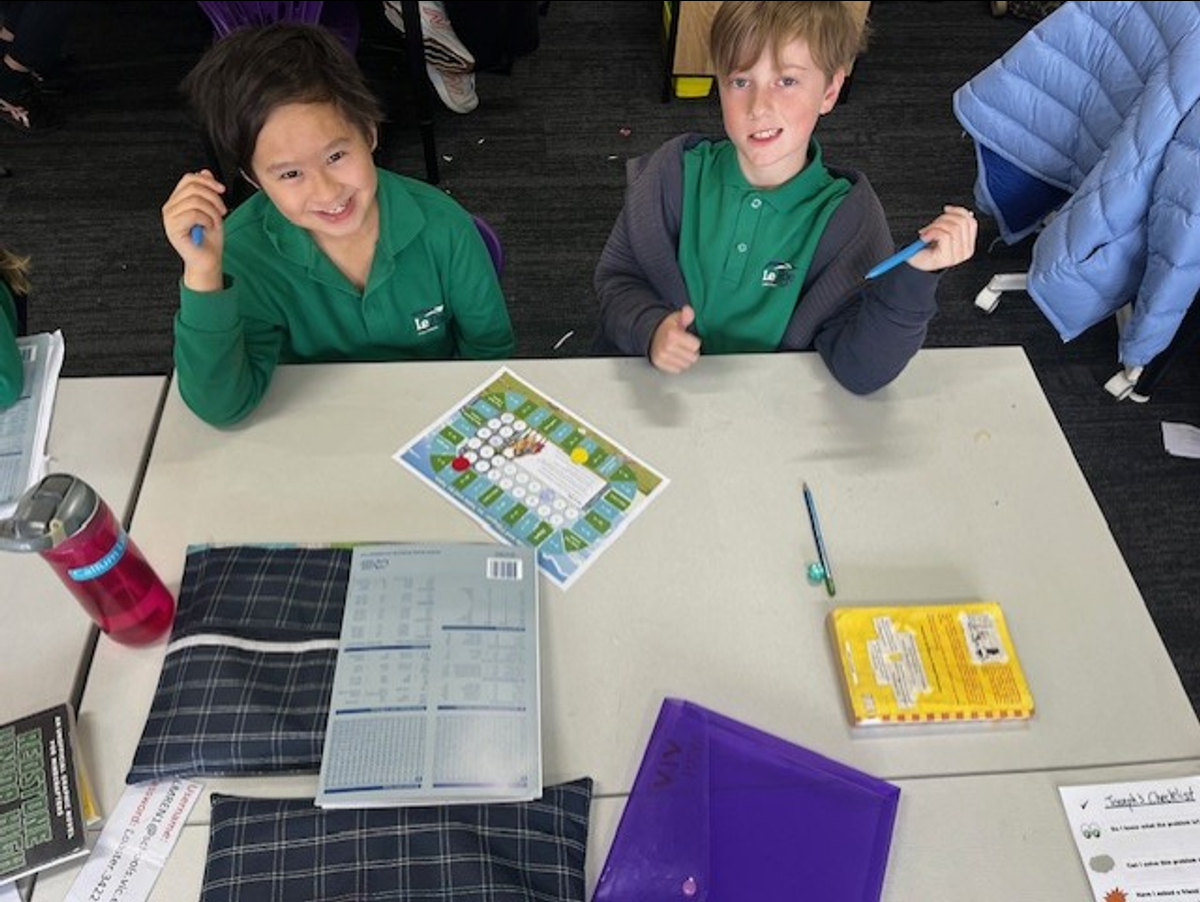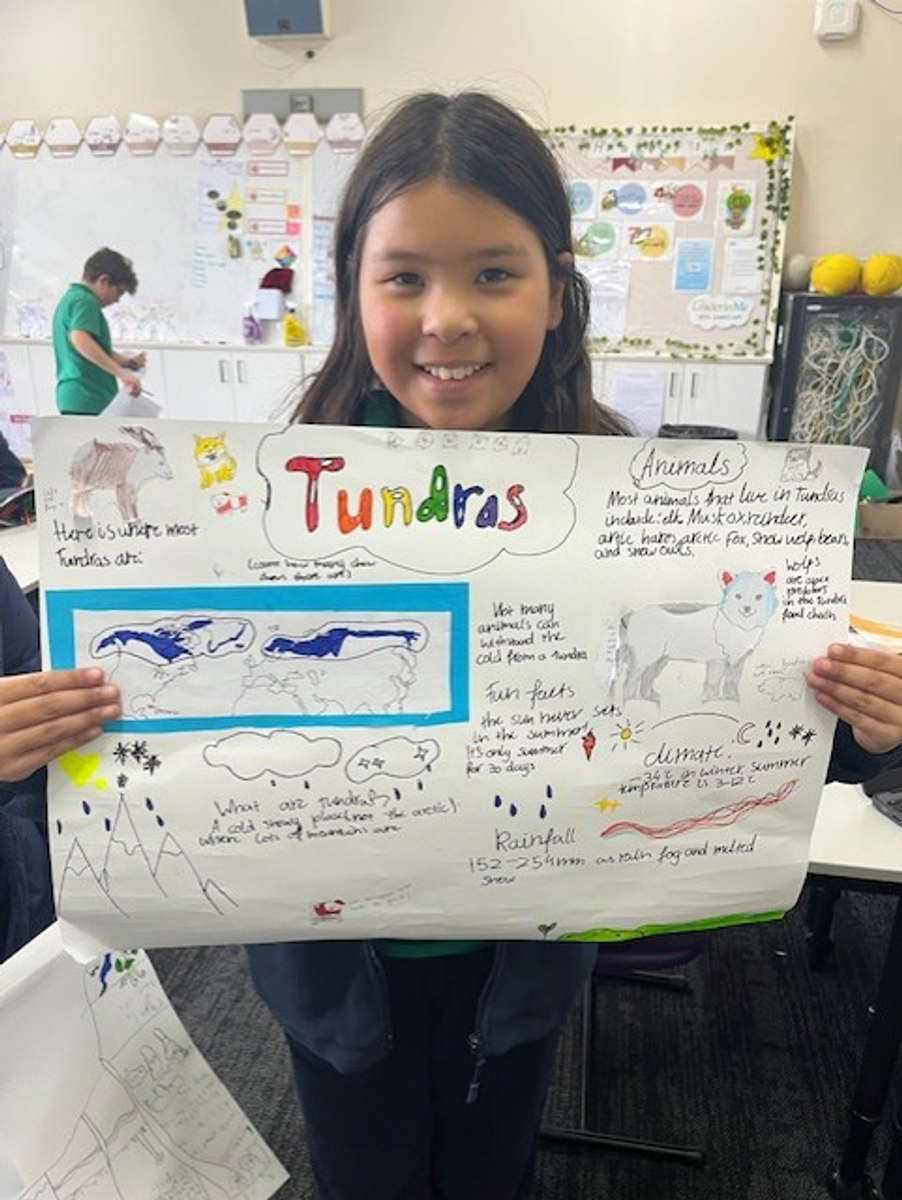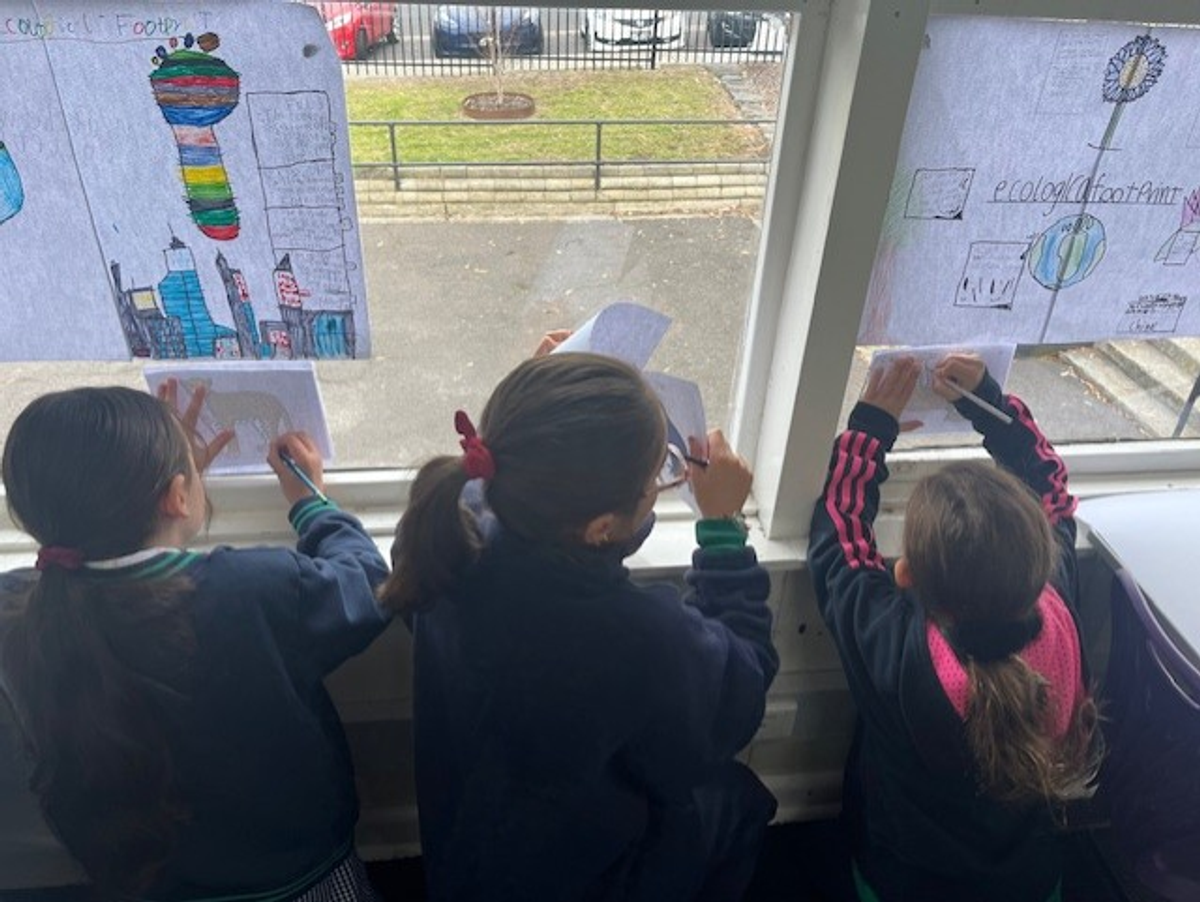Fantastic 3/4

Term 2 Week 11 2024
What have we been up to?
We can’t believe we are already halfway through the school year. We have had a fantastic first semester with all of the 3/4 students. We would like to commend them on such a wonderful semester of learning and we look forward to seeing what they will achieve in the second half of this year.
In writing, the students have finished writing information reports on a topic of choice. They have done a wonderful job at sharing what they are passionate about.
In Reading students have continued growing their knowledge of word origins through the Morpheme Magic program and developing their reading fluency by segmenting and blending through the Little Learners Love Literacy Program. The students finished reading their book club book ‘Misery Guts’. The unit concluded with a book review looking at what they enjoyed in the story and what could have been developed further.
In Maths students have continued learning about Division at their point of need and will continue to explore how collections of items can be broken into equal-sized groups. As students work towards the end of the Inquiry unit of learning they will be reflecting on the different environments that they have explored this term including: tundras, deserts, tropical rainforests and temperate grasslands. The unit of learning concluded with the creation of a PowerPoint or Poster on one of the environments that they enjoyed learning about the most. Science will see students finalising their learning about living and non living things and these are used in our everyday life.
A note about homework
Suggestions for Holiday Learning and beyond:
Congratulations on making it through another busy term at Le Page Primary School. Holidays are a great chance to rest and reset, but it can also be a great opportunity to check-in with your student to see how they are progressing with their learning. Whilst every effort is made at school to have learning differentiated for your student, it is only through a combined partnership between families and teachers that students can achieve their full potential. Below are some suggestions to support your student during the holidays and into Term 3.
Reading:
In Grade 3 and 4, the approach to Reading experiences a significant shift and rather than learning to read students should be reading to learn. There is a greater emphasis on thinking deeply about the texts that they are reading and posing questions about characters, events and choices made by the author. Whilst reading independently is a great skill that students need to develop, reading aloud to an adult still has a big role to play. Try to listen to your student read aloud for a minimum of 15 minutes a night and during this period ask questions about the text to encourage students to make inferences. Making inferences is a necessary skill to develop your student’s analytical skills. Possible questions to ask include:
- Why do you think the character chose to do that?
- Why do you think the Author chose to use that word to describe something?
- Why would the character react in that way to what was said and done?
- Why do you think the character is feeling a particular way?
Another great idea for students that are sometimes reluctant to read independently and to an adult is to read to them. By modelling expression, sharing an exciting adventure story and forming a positive relationship with literature, your student may be more willing to engage with literature by themselves.
Writing:
In terms of supporting your students’ writing development, it is key that students begin to commit more and more words to their visual memory (this means knowing that a word is spelt a particular way without having to sound it out). Some ways to learn more words is by rote learning them using a method called ‘look say cover write check’. In short, the method involves the following:
- Looking at the word spelt correctly.
- Saying the word to connect the written word with the spoken word.
- Cover the word so it is no longer visible.
- Attempt to write the word by yourself.
- Check the spelling of what you have written versus how the word is actually spelt.
Sentence expansion is also an important skill that students have been focussing on this year as part of the Write to Learn program. Sentence expansion involves students making sure that every sentence that they write includes certain language features.
‘The dog sat’ sat is considered a simple sentence because it only includes a subject and predicate. In that above sentence ‘the do’ sat is the subject of the sentence and ‘sat’ is the predicate or the action being done by the subject. To expand this sentence we need to turn it into a compound or a complex sentence.
A compound sentence is a sentence that is connected by a conjunction such as ‘and’ eg The dog sat and looked around. A complex sentence is a sentence that is connected by conjunctions such as because, if, however, so. It is considered complex because the conjunctions make the first part of the sentence dependent on the second part of the sentence or what we might called a ‘clause’. For instance, the following example shows how the ‘the dog sat’ can be expanded into a complex sentence using a conjunction and by make the clause dependent.
‘The dog sat because his owner had given him a command.’
We know that this sentence is complex, and the clauses are dependent because the order of the parts can be reversed and the sentence still makes sentence. For example:
‘Because the owner had given a command, the dog sat.’
If you are looking at the above explanation of a sentence expansion and thinking that there is no way my student is going to understand those terms, you can also approach this in terms of what we call ‘the 5 Ws’. The 5 Ws is a way of thinking about sentence construction in terms of where something happens, when something happens, who it is happening to, why something happens and what happens.
To expand the same sentence using this method you could do something similar:
‘In the early morning, the dog sat in the back yard looking up into the tree at a little bird.’
This sentence clearly explains where the sentence is happening – in the back yard, when the sentence is happening – In the early morning, who it is happening to – the dog, why it is happening – because the dog was interested in the bird and what is happening – the dog is looking up into the tree. Doing just a couple of sentence expansions a day can support your student in developing their sentence construction.
Maths - The following pages provide some useful links to online activities that can support your students’ maths development.
For practising using the four operations Top Maths can be a very useful website for developing quicker recall of number facts.
https://www.topmarks.co.uk/maths-games/3-5-years/counting
Students can also access ‘My Numeracy’ through their Essential Assessment login which has been provided in their homework book. This learning tool provides plenty of activities for students to take part in on all areas of the Maths curriculum at their level.
Here are some photo highlights:
















